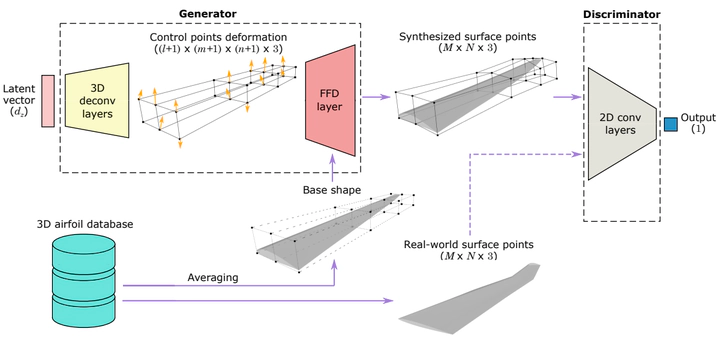
Abstract
In aerodynamic shape optimization, the convergence and computational cost are greatly affected by the representation capacity and compactness of the design space. Previous research has demonstrated that using a deep generative model to parameterize two-dimensional (2D) airfoils achieves high representation capacity/compactness, which significantly benefits shape optimization. In this paper, we propose a deep generative model, Free-Form Deformation Generative Adversarial Networks (FFD-GAN), that provides an efficient parameterization for three-dimensional (3D) aerodynamic/hydrodynamic shapes like aircraft wings, turbine blades, car bodies, and hulls. The learned model maps a compact set of design variables to 3D surface points representing the shape. We ensure the surface smoothness and continuity of generated geometries by incorporating an FFD layer into the generative model. We demonstrate FFD-GAN’s performance using a wing shape design example. The results show that FFD-GAN can generate realistic designs and form a reasonable parameterization. We further demonstrate FFD-GAN’s high representation compactness and capacity by testing its design space coverage, the feasibility ratio of the design space, and its performance in design optimization. We demonstrate that over 94% feasibility ratio is achieved among wings randomly generated by the FFD-GAN, while FFD and B-spline only achieve less than 31%. We also show that the FFD-GAN leads to an order of magnitude faster convergence in a wing shape optimization problem, compared to the FFD and the B-spline parameterizations.